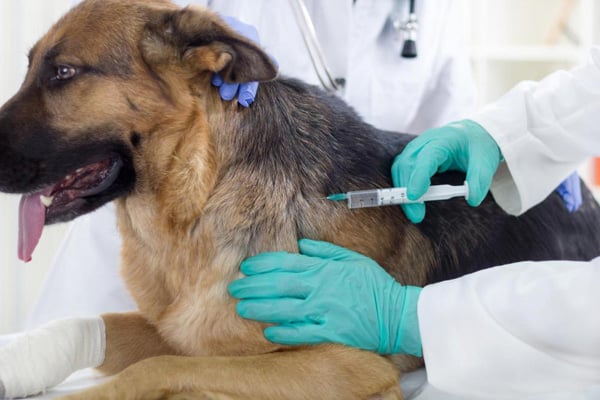Rabies still a huge burden, says minister

State Minister for Animal Husbandry, Mr Bright Rwamirama. Photo | File
What you need to know:
- The minister recommended that when one is bitten by a dog, they should immediately wash the wound with soap and water.
Rabies is still a burden in country, the State Minister for Animal Industry, Mr Bright Rwamirama, has said.
Addressing journalists in Kampala at the weekend, Mr Rwamirama said more than 16,238 suspected rabies cases were recorded between July 2021 to June this year.
He said 33.3 percent of the cases were recorded in central, 25.1percent (northern), 24.1 percent (western) and 17 percent (eastern).
“Rabies is endemic in Uganda and has been reported in almost all the districts. The disease has caused enormous loss in terms of human lives, livestock and disability from bites and procurement of vaccines and rabies vaccines for humans,” Mr Rwamirama said.
Rabies is a fatal viral disease that affects both humans and animals. Ninety-nine percent of the human cases are due to bites from infected dogs.
Mr Rwamirama said the country loses 32 people annually due to rabies, adding that the number could be even more since some may go unreported.
However, he said the government has developed the national rabies elimination strategy to guide the country in control efforts against the disease and eventual elimination by 2030.
Prevention
The minister said to hit the target, the ministry allocates Shs8 billion every year for the procurement of anti-rabies treatment for both humans and animals.
Mr Rwamirama said there will be mass vaccination of dogs and cats countrywide starting September 24 (Saturday) to Wednesday.
This is one of the activities to commemorate the World Rabies Day that is marked on September 28.
Mr Ben Senkerra, the senior veterinary officer at the ministry, said districts will decide on the vaccination centre, adding that vaccination will continue after the commemoration day.
“The national celebrations are in Tororo but individual districts are doing it at different levels and it usually goes to village level but this doesn’t mean that on Wednesday vaccination will stop, they will have to continue because this is the routine activity,” Mr Senkerra said.
The day, which will be held under the the theme: “Rabies: One Health, Zero Deaths”, highlights advocacy for rabies control and stakeholder mobilisation.
Other activities include vaccination of humans at risk of rabies such as veterinary staff, clinical year students and health professionals, and sensitisation through radio and television talk shows.
According to the ministry, the country has a population of about two million dogs and one million cats. Mr Rwamirama urged dog owners to develop a lifetime training programme for their dog and always adhere to it and also ensure they are vaccinated each year. He advised people bitten by dogs to immediately wash the wound with soap and water.
The minister recommended that when one is bitten by a dog, they should immediately wash the wound with soap and water.




